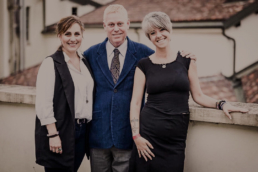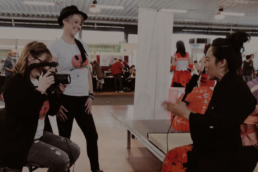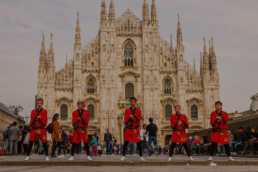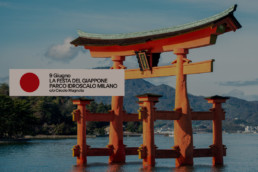Bringing Japan to Italy: episode 08 - Alex Kerr
In conjunction with the release of his book "Lost Japan", Alex Kerr held a conference at the Palazzo Reale in Milan. We at Japan Italy Bridge had the opportunity to meet him and ask him some questions.
In this episode 8 of our Bringing Japan to Italy series, Alex Kerr tells us about his secret Japan. Son of an American navy family, from a young age he travels the world between Italy, Japan, USA, and then returns to the land of the Rising Sun. Since his college years, Alex Kerr has made Kyoto his life base.
Here he discovered a new world, a Japan that we Westerners can hardly see. A country made of traditions, small villages and thatched-roof houses with antique wood floors. He tells us how his life has changed thanks to winning the Scincho Gakugei literary prize. As a result, Alex Kerr came into contact with a group of Litterti and Japanese artists with whom he still collaborates today.
But now we leave you with the words of Alex Kerr and his secret Japan. Enjoy the video!
Special Thanks: Associazione Giappone in Italia
Lost Japan: Amazon US
Bringing Japan to Italy: episode 07 - Yoko Takada
A few months ago, in conjunction with the Novegro comics festival, we had the opportunity to interview Yoko Takada. For this seventh episode of 『Bringing Japan to Italy』, the artist specializing in Japanese culture, tea ceremonies, Kimono dressing and much more speaks to our microphones.
Yoko Takada has kindly granted this exclusive interview for Japan Italy Bridge to help promote and share more the Japanese culture. Furthermore, we talk about the similarities between Japan and Italy, and why the bow is so important in the land of the rising sun. Did you know that? Enjoy the video!
Age of Samurai: Battle for Japan soon on NETFLIX
For all the TV series addicted that lately are going through a crisis of abandonment (or disgust) for the latest Game of Thrones series, do not despair, "Age of Samurai: Battle for Japan" is on its way.

photo credits: wikipedia.org
Age of Samurai: Battle for Japan, the series
According to Deadline, Netflix in collaboration with Blu Ant Media-run Smithsonian Canada, would have included in its programming Age of Samurai. in fact, described as a real Game of Thrones of feudal Japan, the series will tell the wars between the various kingdoms of that era.
According to previews, the focus of the series will be the figure of Date Masamune, the famous samurai also known as One-Eyed Dragon. He fought alongside the three founding fathers of Japan, warlords who led fierce samurai armies against one another. The purpose of these wars was the unification of the nation about 400 years ago.
The epic figure of Date Masamune, whose legend tells of having lost an eye infected with smallpox as a child, is the protagonist. Furthermore, after killing his younger brother, he succeeded his father as clan leader when he was only 17 years old.
Also conquering the neighboring clans, Date Masamune began the rise to power to unify northern Japan under his control.
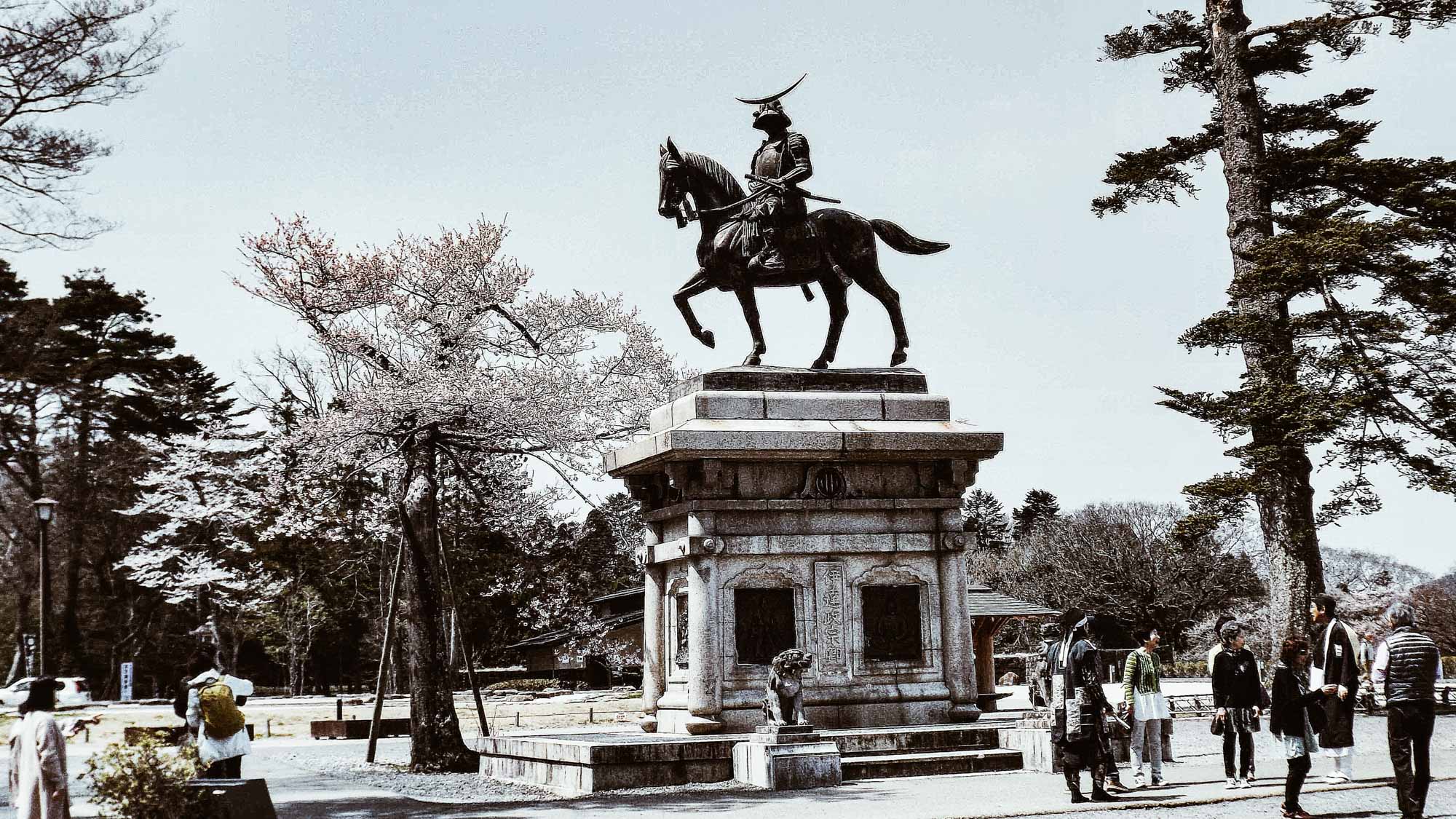
Production details
Netflix has commissioned to produce the series at the Canadian production company Cream Productions, already behind the PBS series The Dictator's Palybook, BTK: A Killer Among Us and Fear Thy Neighbor.
Furthermore, executive producers, as well as Cream's CEO and co-founder David Brady, President Kate Harrison and senior production executive Matthew Booi, will be Simon George of the movie Jason Silva for Nat Geo Origins: The Journey of Humankind, Barbarians Rising for History and Showtime documentary Pariah: The Lives and Deaths of Sonny Liston.
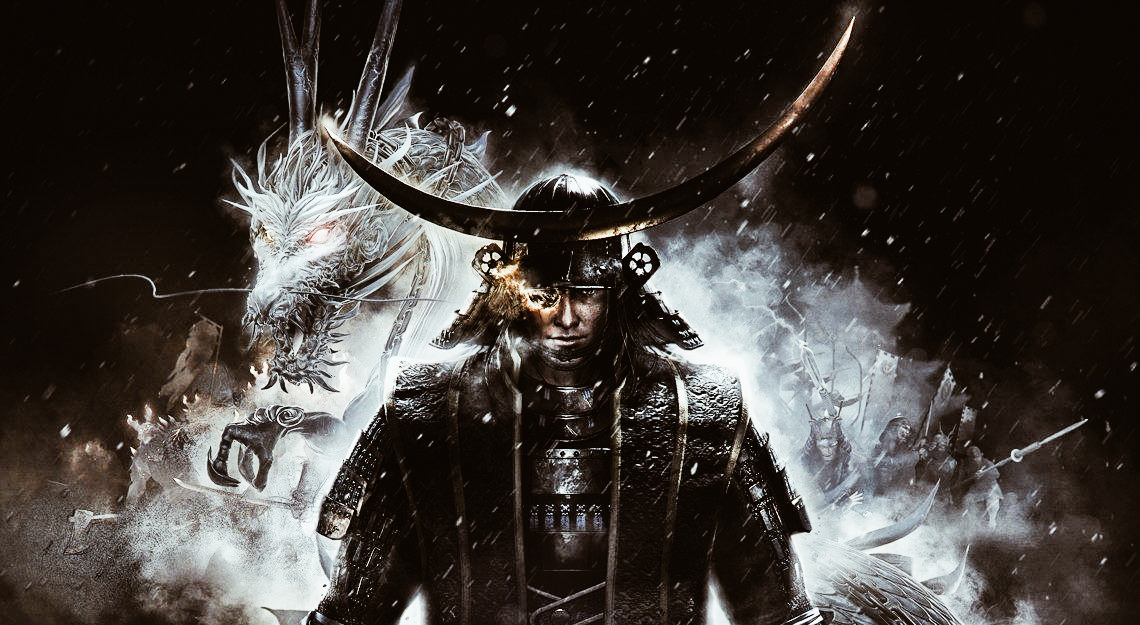
photo credits: dualshockers.com
According to the source, Age of Samurai: Battle for Japan is already being filmed in Japan, the United States and Canada. The series is in fact expected to land on Netflix by the end of the year.
We look forward to it and look forward to seeing this new series in one go! And you?
Festa del Giappone 2019 Video Report
On June 9th, we had the pleasure of participating in the "Festa del Giappone". Organized by our friends from Giappone in Italia at the Circolo Magnolia in Milan, the event was a real success!
Among stalls, workshops, conferences, and shows connected to Japan, the public was able to dive even for a little bit into the true Japanese culture. Furthermore, Kokeshi dolls, paintings and many delicacies that have attracted the attention of all visitors. While starting from the Okonomiyaki passing through the typical Japanese curry rice to the famous Takoyaki, the Japan Festival also involved several personalities from the Rising Sun scene in Milan.
We at Japan Italy Bridge have made a little video recap and we hope to see you at the next Japan Festival!
Bringing Japan to Italy: episode 06 – Takarabune
A few months ago, in conjunction with the Japan Matsuri in Bellinzona, we had the opportunity to interview one of the very few Awa Odori dance troupe: Takarabune!
The Awa Dance Festival (阿波踊り), the largest dance festival in Japan, is held from August 12th to 15th as part of the Bon Festival in Tokushima prefecture of Shikoku in Japan.
The earliest origins of this style of dace are found in the Japanese Buddhist priesthood dances of Nembutsu-odori and hiji-odori of the Kamakura period (1185 – 1333), and also in the kumi-odori, a lively crop dance that was known to last for several days.
The Takarabune group has been traveling the world for years to bring joy and to share the culture of Japanese festivals with all other foreign nations.
In an exclsive interview for Japan Italy Bridge they tell us how they see the relationship between Italy and Japan and their thoughts on our beautiful country. Enjoy!
Follow Takarabune
Website: takarabune.org
Facebook: facebook.com/Takarabune.official
Instagram: @takarabune_official
Twitter: @Takarabune_info
Festa del Giappone @ Circolo Magnolia

On June 9, 2019, at the Circolo Magnolia located at Parco Idroscalo, an entire day dedicated to Japanese culture will be held. There will be many workshops, demonstrations and important personalities known in the world of the Rising Sun. Obviously, you can also taste the coveted Japanese food and sake.
Many are the workshop available for the audience! You can find the manga drawing workshop curated by Giappone in Italia, focusing mainly on the character design. Furthermore, you will find the Lykke Anholm workshop, the Italian ambassador of the KonMari method, focusing on the whole philosophy underlying the worldwide phenomenon of Marie Kondo. Also, have you ever heard of Kintsugi? It’s the ancient and very significant Japanese art of repairing ceramics with urushi lacquer and gold dust. The restorative artist Chiara Lorenzetti will explain this in the smallest detail.
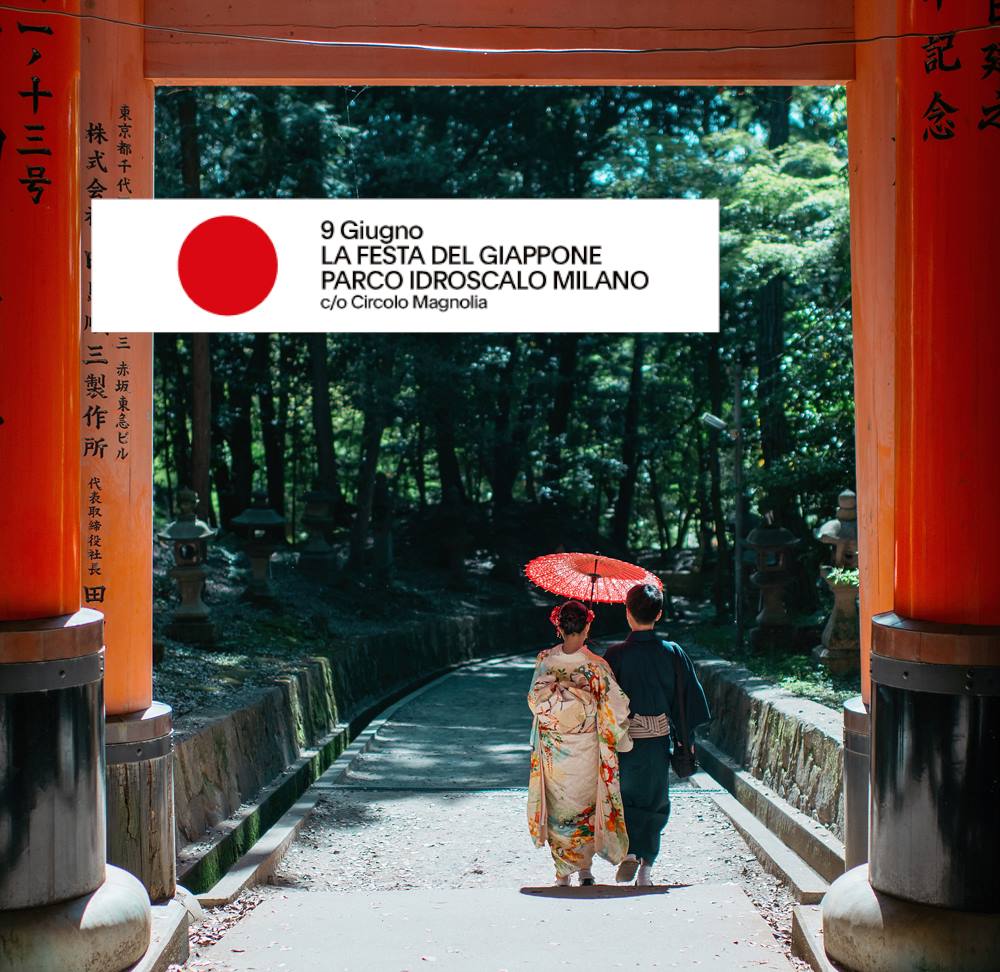
A dive into Japanese tradition with some demonstrations, including the Yukata Dressing by Mamiko Ikeda and the evocative Tea Ceremony by Alberto Moro. IFIORINELLARETE takes care of the demonstration of Kokedama, a technique in which a seedling is removed from its own pot and wrapped in a ball made with a mixture of different substrates, covered with fresh moss. The plant created can be placed on a flat surface, or left floating in the air for an even more suggestive effect. The famous Keiko Irimajiri will present her Bentō Showcooking while Luca Vecchi will tell us about the concept of his work Okaa-Sama | Honorable Mother.
And for all the people that love the Japanese language, Eurasia Language Academy will hold An interactive language course! Curious?
We’ll be waiting for you on June 9th at Circolo Magnolia, Parco idroscalo. We’ll be there, what about you??

Info & Prevendite
Pre-sale: bit.ly/Prevendite_LaFestaDelGiappone
Organisation: Associazione Culturale Giappone in Italia
Website: www.giapponeinitalia.org
Mail: info@giapponeinitalia.org
Japan Italy: "An Italian in Japan" the serie - Michela Figliola
Warm Cheap Trips, Michela Figliola and her experience
A few months ago we launched the column "An Italian in Japan" where we interview our compatriots in the land of the Rising Sun. Few succeed in realizing the dream of going to live in Japan and we want to share with you the experiences of those who succeeded! Today we present Michela Figliola, a very Italian girl who lives and works in Japan!
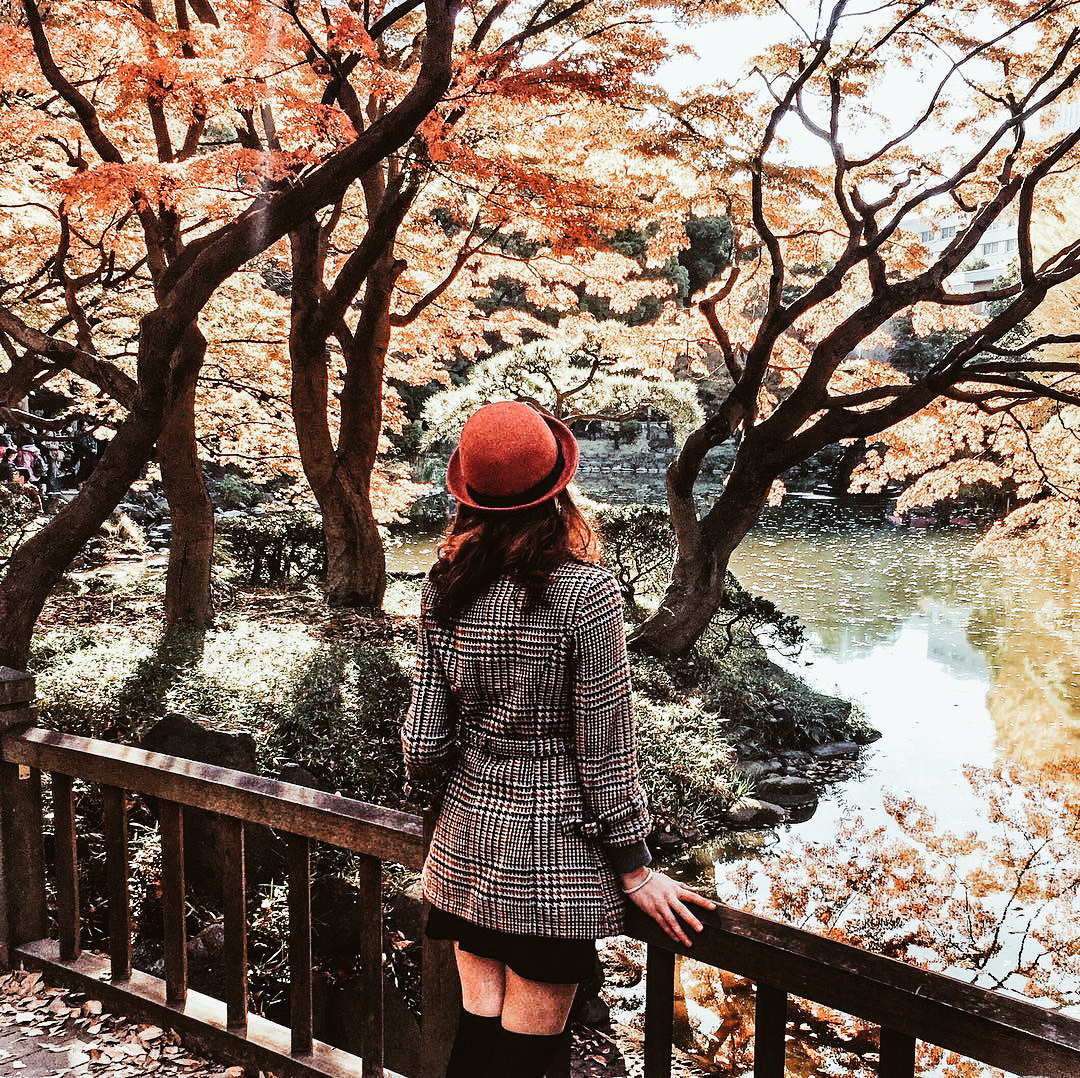

JIB: Tell us who you are shortly
M: Michela, from Brescia, in fact from Franciacorta, in love with travels. At the age of 28 I decided to leave my permanent position in Italy and move to Japan, a country that I love very much and where, despite its oddities, I feel at home.
JIB: Where does your passion for Japan come from?
M: I don't really remember what triggered it. I have always been attracted by the East, by its very different culture and its traditional landscapes. A series of events made me increasingly familiar with Japan and its classical culture and I was bewitched more and more every day. I still love to discover its history and deepen its many cultural nuances.
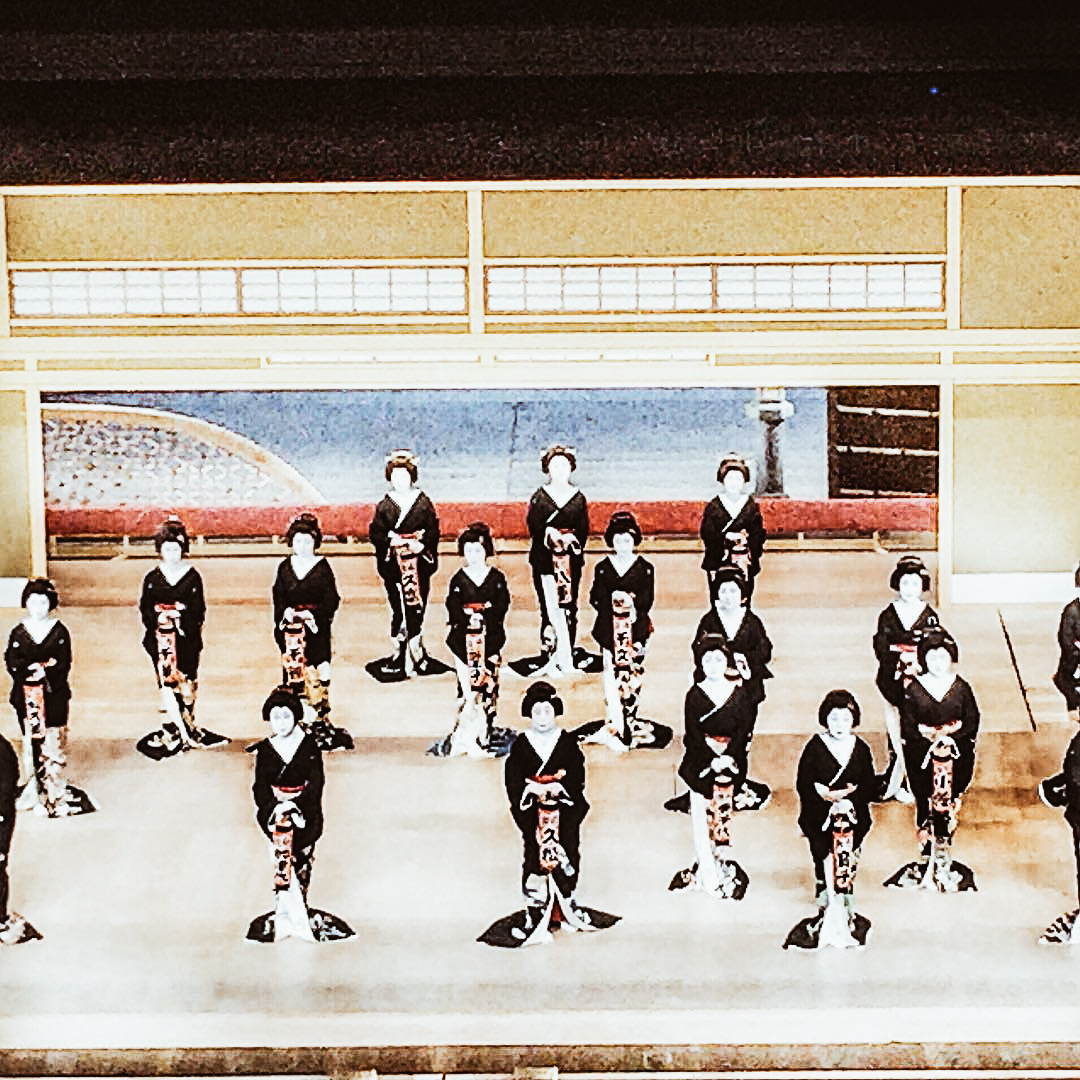

JIB: You have moved to Japan since a while now, what are the steps you took to live in this country?
M: The dream of moving here was born about 6 years ago, on the first trip. From there I evaluated the various options, including that of starting my own business. In the end, especially for a monetary issue, I fell back on the classic student visa to learn the language and then find a full-time job once here.
Although less expensive than the visa business, the Japanese school is still not cheap, so it took me a few years to save enough to afford school and expenses in Japan. Together with a work permit and working for 28 hours a week, you can partially cover your daily expenses.
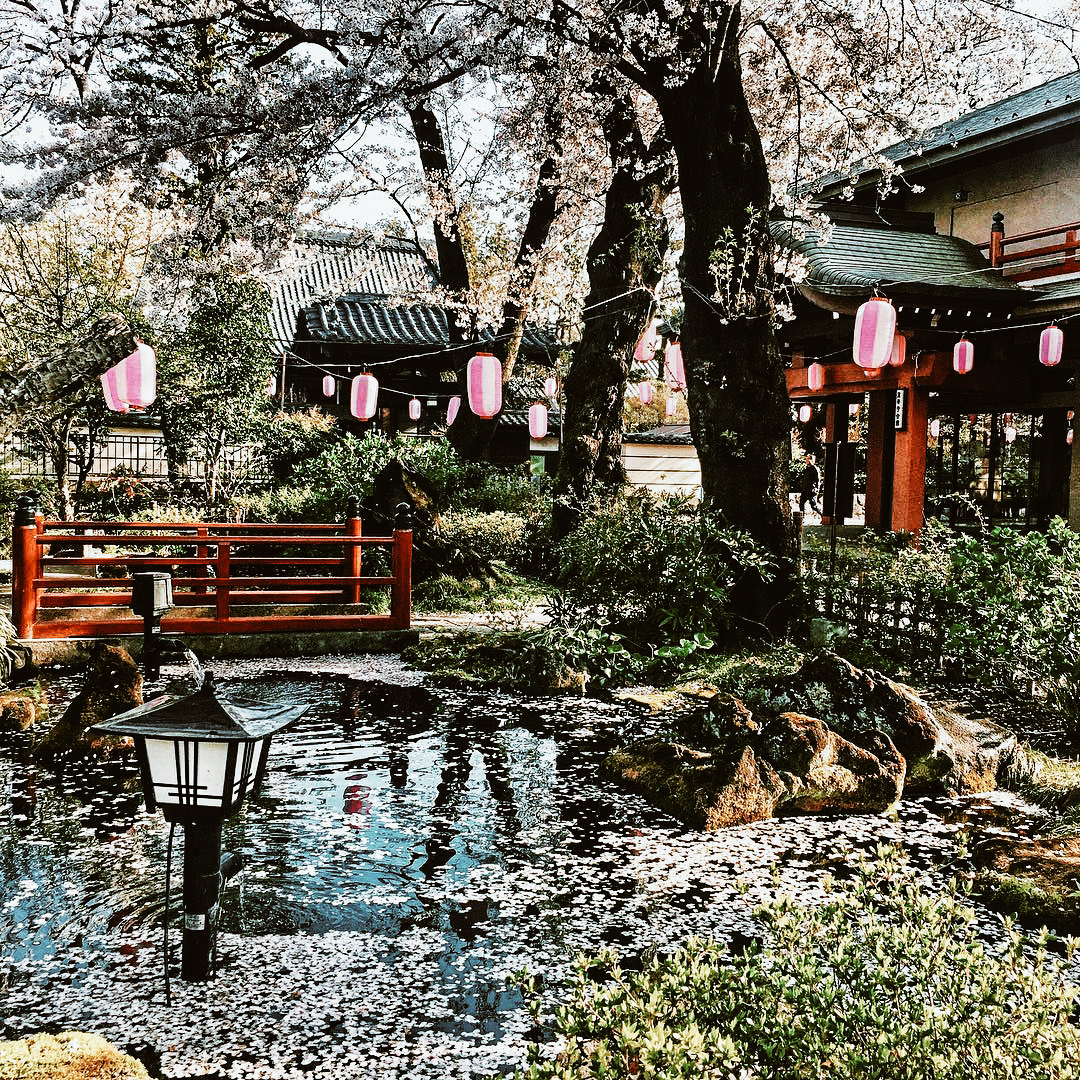

JIB: Tell us about one of the funniest experiences you had since you lived in Japan.
M: More than fun experiences, these are meetings: once I met a pig with a rainbow tuft, while I was walking through the streets of the Asakusa area. While on another occasion, coming out of an izakaya near home, I met the famous Sailor Suit Old Man, the old man dressed as a schoolgirl!
JIB: Your blog, warmcheaptrips.com, what it was born of and how you developed the idea until it got to what it is today
M: The blog was born in 2015, after yet another trip organized in detail in autonomy, struggling to find the answers I was looking for. At the suggestion of a friend who asked me to pass her one of my old itineraries so that she replicate it, I decided to put everything that was hidden on my PC online and help other people to travel.
I have always loved writing, as well as traveling and initially, the blog was a way to show what I could do, a sort of portfolio about who I am and how I approach things.
Then over time it became something more professional and I started investing more and more time in it, in order to give useful and interesting information to readers, specializing in cultural itineraries, historical journeys and of course, Japan, especially the less known one.
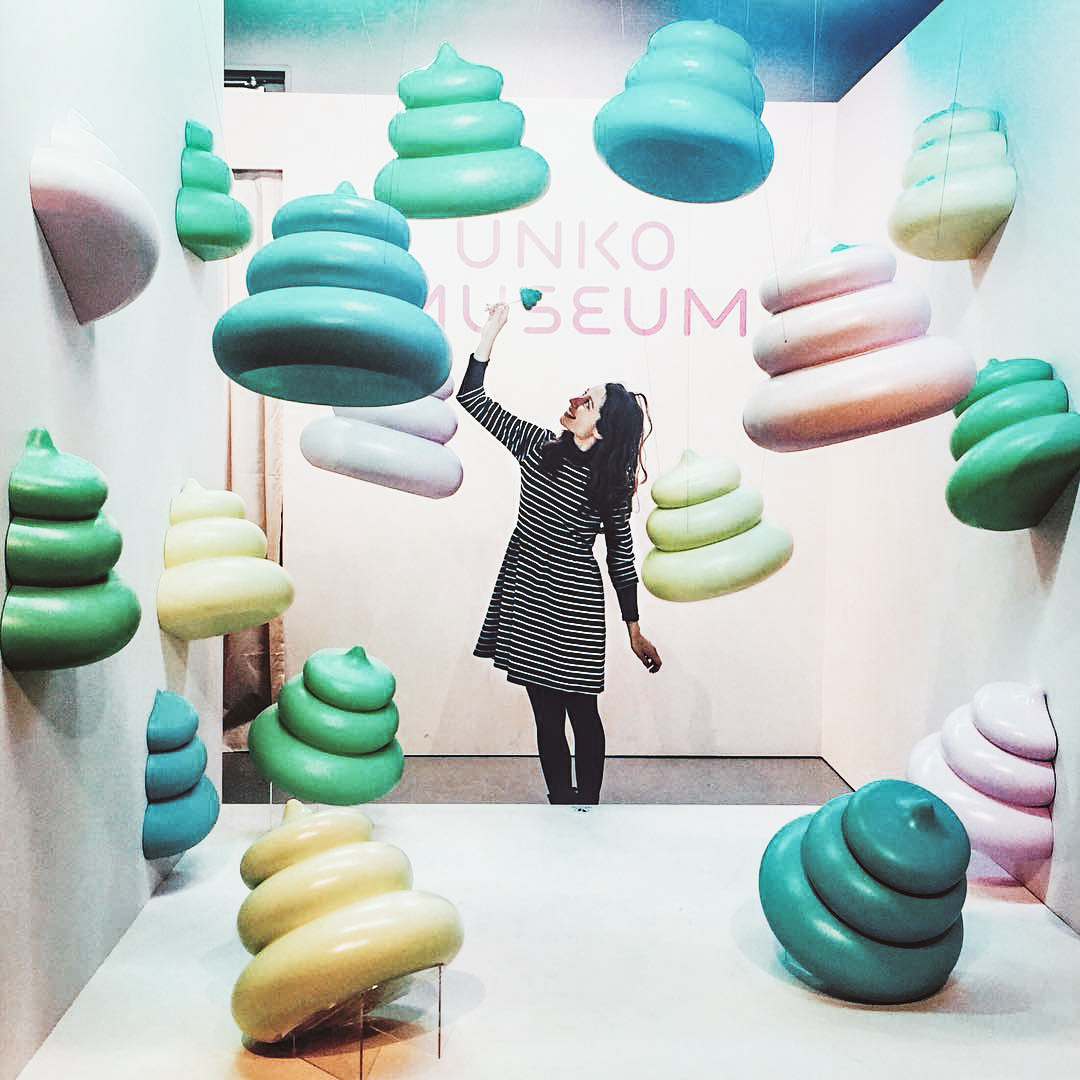

JIB: From the point of view of a westerner, what are the difficulties and the differences that you have found in the first times in Japan compared to Italy
M: Personally, having started with a lot of preparation on all those that can be thorny aspects for the Italians, I didn't have great difficulties. I feel very comfortable and in line with the Japanese attitude. The only thing that every now and then jars a little about me is the total lack of elasticity that in some cases would be useful for solving problems quickly and easily. Or the fact that they rarely express their real opinion and say things between the lines. Reasoning differently from ours, we are not always able to grasp the real point of the situation.
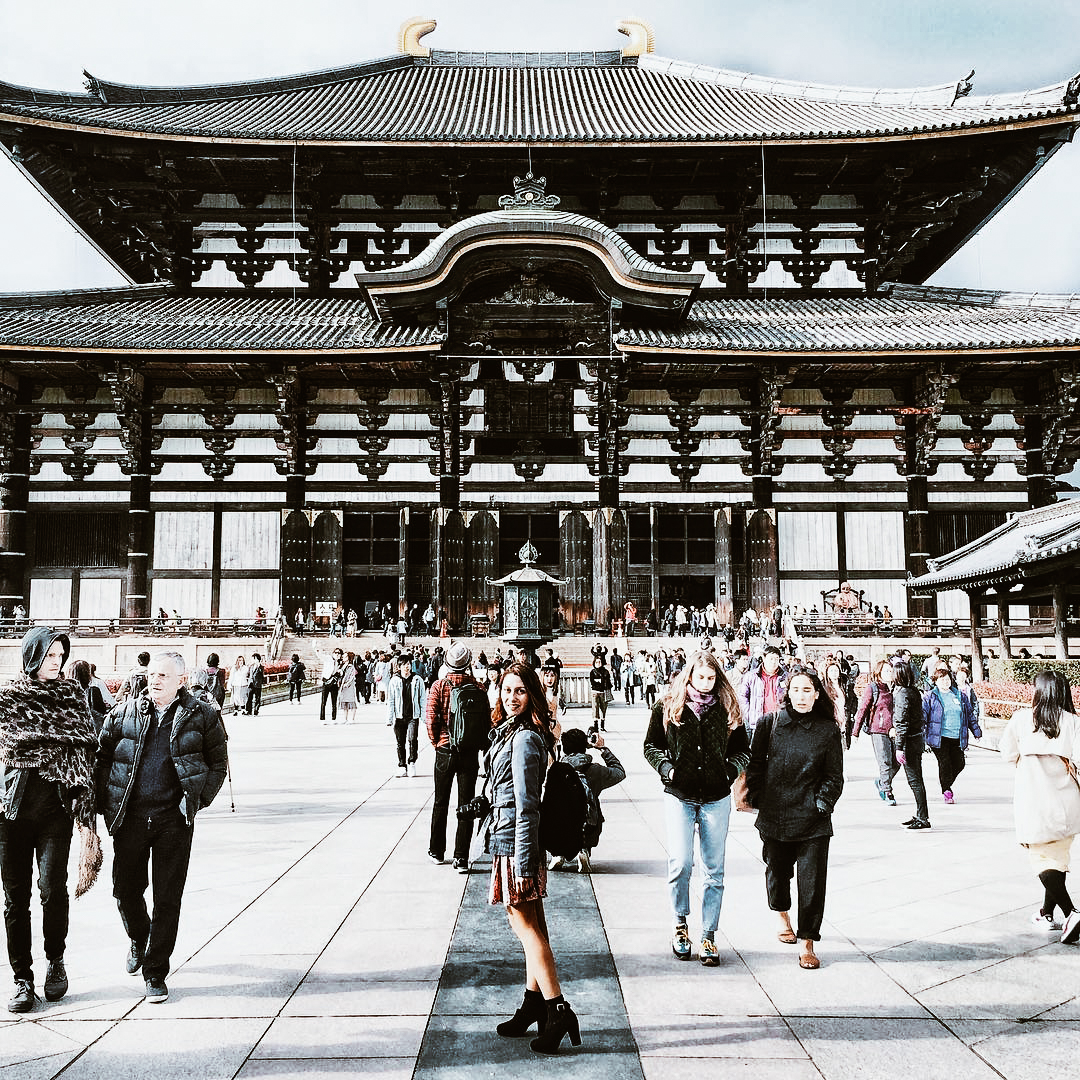
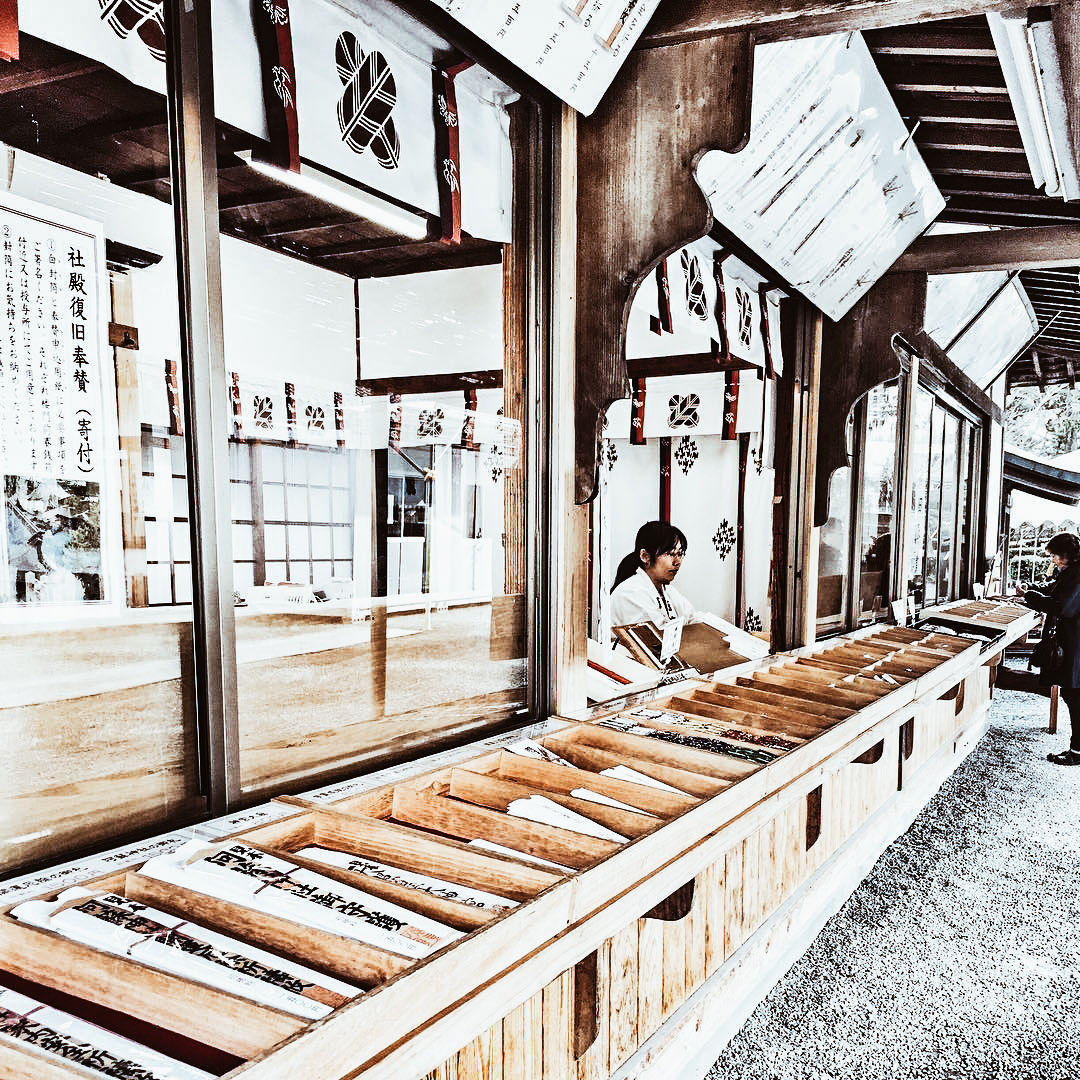
JIB: Many think that Japan is a totally different land from Italy but instead we have found many more similarities than we can imagine. What do you think about it? What are the strongest similarities?
M: Let's say that for many things the two countries resemble each other very much, above all it is impressive how similar they are to being on opposites.
We say that the major similarities are mainly the love for beauty and aesthetics, especially in clothing and in posture. But also in the kitchen: simple flavors, but rich in taste, where the elements that make up the dish have a perfect balance.
There are strong traditions and a lot of attachment to regional cultures and dialects, as well as the playful way in which they divide the country into North and South (or better, east and west) because of different habits and attitudes!
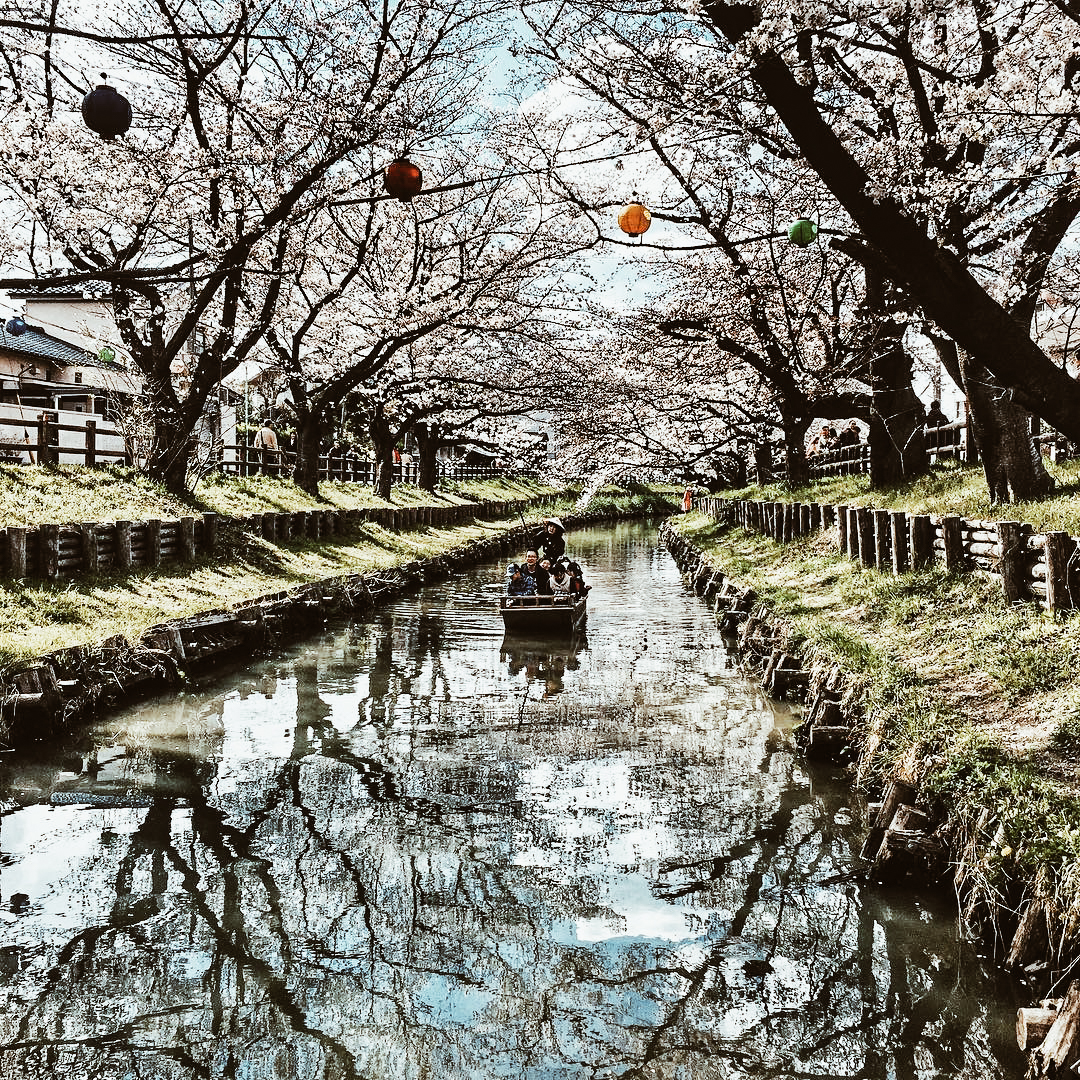

JIB: Projects for the future?
M: Now I am waiting for the new immigration visa, if it doesn’t arrive, I will return to Italy for a year and I will look for work in some company that can offer me a future transfer.
Obviously, I hope that everything goes well and can continue to stay here, working for the current company that deals with the organization of tours and events in Tokyo and the management of Social Networks on behalf of other activities. In parallel I would like to continue my blog, continuing to write about travels both in Japan and around the world.
JIB: How is Italy seen in Japan?
M: They love everything that is Italian, and they often see Italy as a symbol of elegance and refinement. And they have the idea of a very stereotypical Italian man: always full of compliments and attention that fills his woman with flowers and gifts. Lately, however, Italy is seen as a dangerous country to travel to, because of the thefts and scams of which the Japanese are often victims!

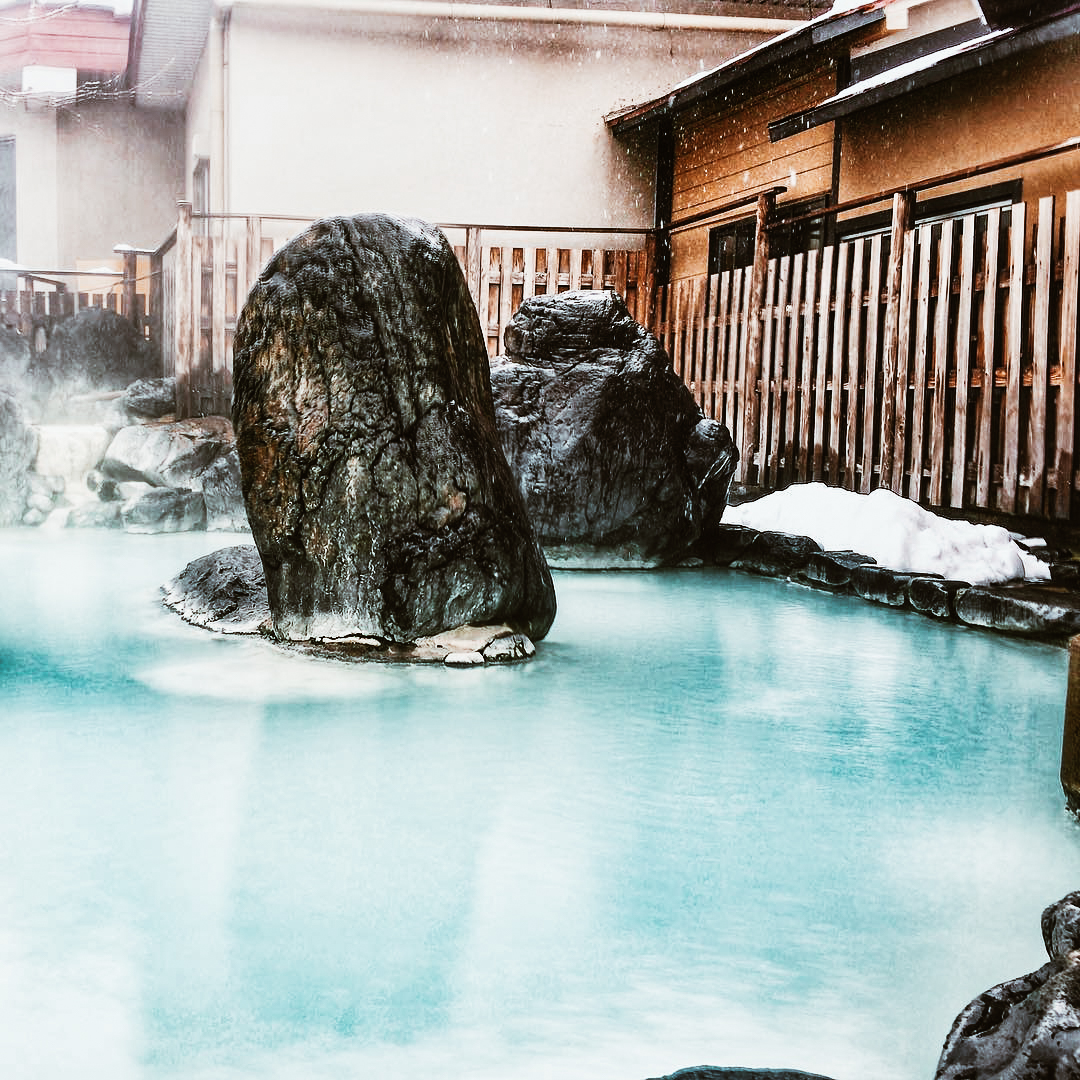
JIB: May in Japan, what's special about this month in the land of the Rising Sun?
M: This year there was the "mega golden week", a series of national holidays that offer about a week of pause from work, but in 2019 it was particularly long because there was the change of Emperor! The Heisei era ended on April 30 and the new Reiwa era began on May 1st, when Prince Naruhito ascended the throne.
JIB: Do you think there is a future for even closer collaboration between the two nations?
M: The interest in Italy by the Japanese is very high, and the interest of the Italians towards Japan increases more and more. Not only from a tourism point of view, but also from an economic point of view and from the exchange of goods, so yes, we will certainly move towards an even closer collaboration between the two countries.


JIB: Do you ever miss Italy? Do you plan to return here permanently?
M: I was fine in Italy too, but I'm better here. Thanks to technology it is still very easy to communicate with Italy so I never feel nostalgic. Sometimes, however, I suffer terribly from the lack of some homemade foods or dishes, but fortunately, there is still a lot of great food here too!
JIB: Give a greeting and advice to all our readers
M: Japan is a fantastic country to visit, don't limit yourself to the great classics, but explore the less traveled areas. Here you will experience the true essence of Japan and you will be able to fully enjoy its culture and tradition. To better understand this country, you have to open your mind, stop judging what seems different and let yourself get carried away by Japan. Always be respectful of the country you are visiting, almost as if you were a ghost, especially if you visit less touristy areas.
Instead, if you are thinking of moving to Japan, study its history and focus on what could be negative aspects of everyday life. Do not trust those who say that everything is perfect! I love it, but I know that for many other people many things could weigh a lot, especially those who are very attached to Italian culture and human relationships as they are in Italy. Here the relationships are extremely different, be aware of them before you decide to transfer!
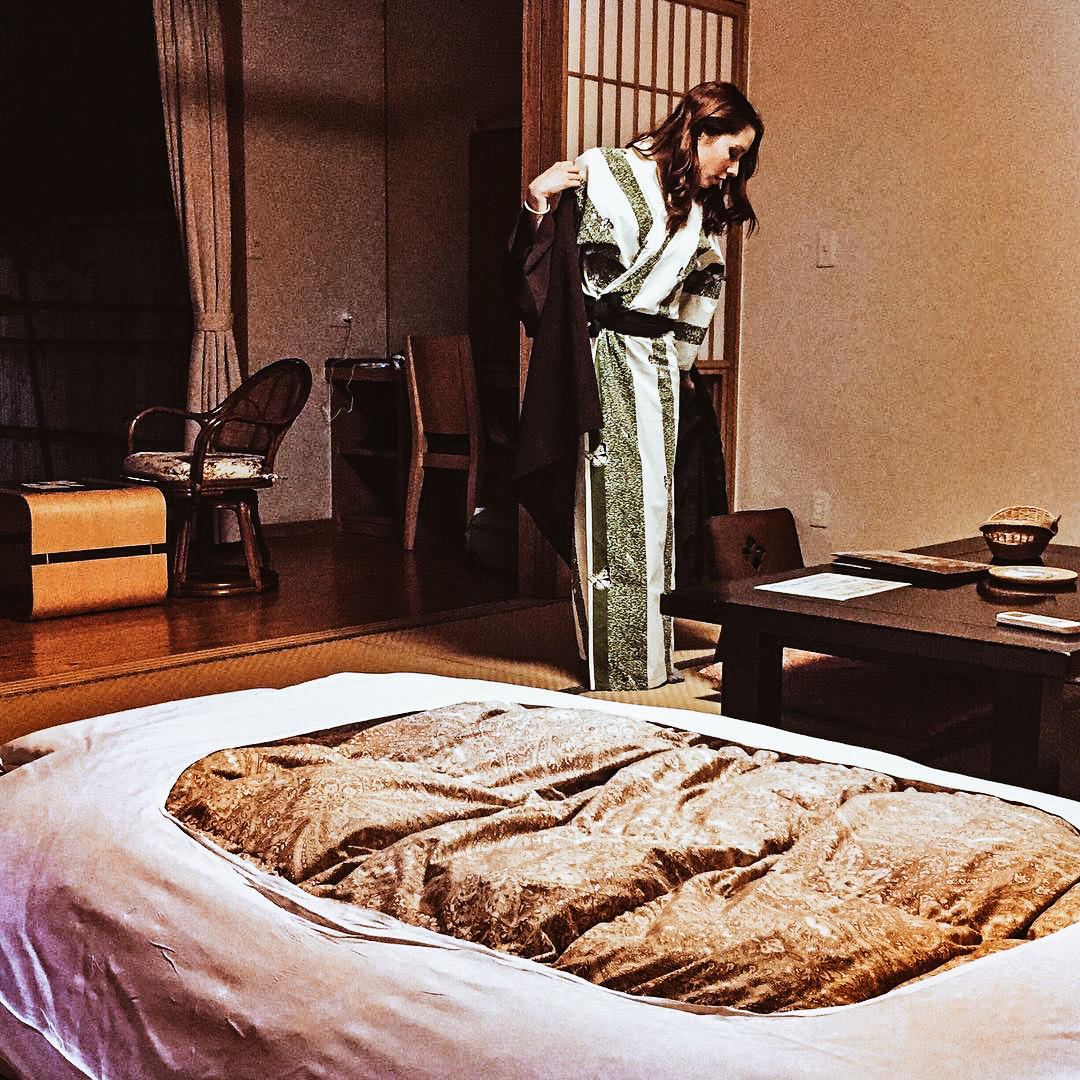

Follow Michela
Website: warmcheaptrips.com
Instagram: @warmcheaptrips
Japan Italy: Far East Film Festival 21 ~ Report
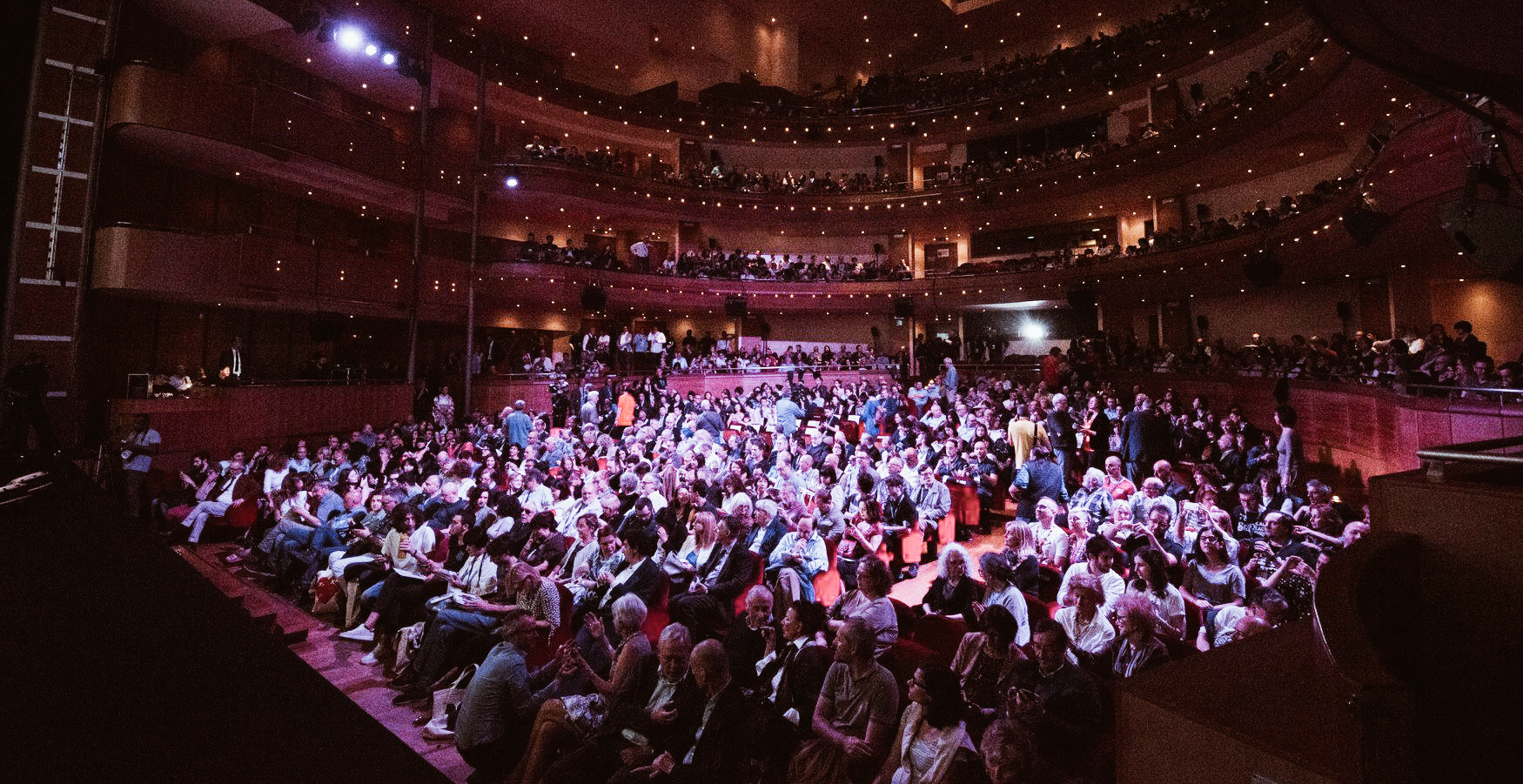
photo credits: fareastfilm.com
"We live on opposite sides of the world and we were afraid that our film would not be understood. But the world speaks a single language: that of love ... ».
We decided to start our article with this phrase by the actress Crisel Consunji after the triumph of the film Still Human at the Far East Film Festival 21. Because this sentence represents the truth, there is only one language that unites the whole world and it is that of love.

photo credits: gacktitalia.com
It is therefore certainly a common thought, that of not being understood, that the Eastern vision of cinema can somehow not be understood by the Western world. The Far East Film Festival has still given light to this world that while it seems so far away from us, it really isn’t and, on the contrary, the similarities are many.
The film Still Human, directed by Oliver Chan and the lead actor Wong, who had already been awarded the Golden Lifetime Career Award, won the Far East Film Festival 21 and the critics' award. In second place we find the Chinese black comedy Dying to survive by Wen Muye and in third place the Korean Extreme Job by Lee Byoung-Heon.
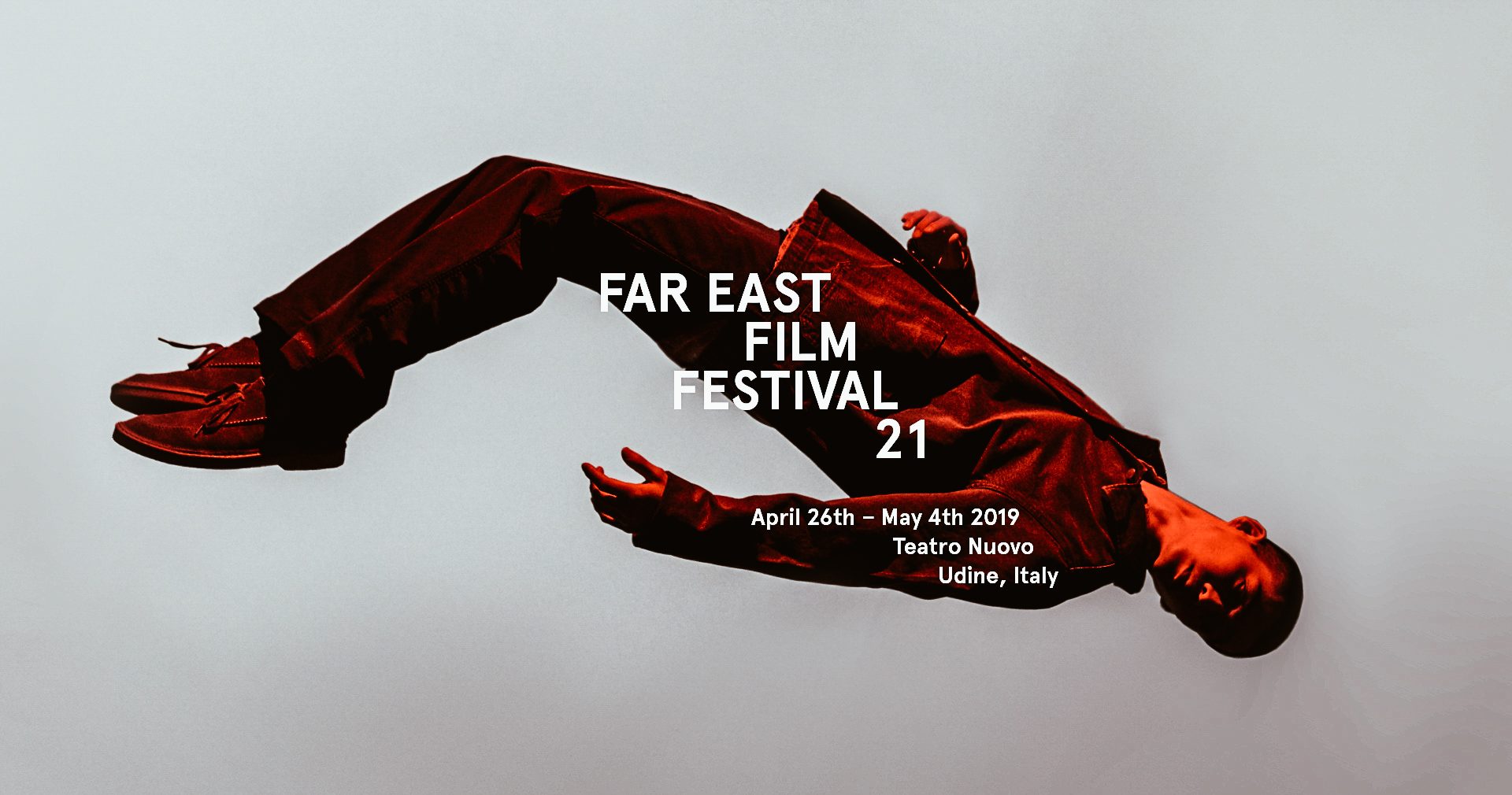
photo credits: scmp.com
Melancholic by emerging director Tanaka Seiji won the White Mulberry for first feature films while Fly me to the Saitama by the great director Takeuchi Hideki won the MYmovies award.

photo credits: mymovies.it

photo credits: mymovies.it

photo credits: aficfestival.it
The Far East Film Festival 21 ended with exorbitant numbers: 9 days of programming. 77 films, 3 world premieres, 14 debuts, 60,000 thousand spectators, over 20,000 participants in city events and 1600 accredited (journalists, teachers, students, ambassadors of other festivals), coming from over 20 countries: Italy, Holland, Slovenia, United Kingdom, Germany, Sweden, United States, France, Belgium, Switzerland, China, Canada, Spain, Hong Kong, Japan, Croatia, Hungary, Poland, Austria, Norway, South Korea, Czech Republic, Brazil, Sweden and Serbia. Over 100 appointments including the Cosplay Contest, with over 20 thousand presences. We must not forget the very active Facebook community of the festival with 30 thousand fans involved.

photo credits: japanitalybridge.com
It was not only the Festival of the East but also of the whole world. Attendance came from anywhere.
Japan Italy Bridge attended as a media and we were able to witness an aggregation of people, including film buffs, experts, enthusiasts, journalists who were not afraid of the rain and the cold and enthusiastically participated in all the events and the projections.
A great enthusiasm that was also noticed in the talks held by the directors and actors, huge participation and curiosity to know how the works were born and how they came to life.

photo credits: japanitalybridge.com
As far as we are concerned, with GACKT ITALIA, one of our projects, we followed the creation, the rise and the great success of Fly me to the Saitama step by step, translating and sharing articles, interviews and videos for months now. It was, therefore, a great thrill to be able to see the film we talked about for so long here in Italy, to hear the audience's laughter and the silences in intense moments. It was a bit like seeing the complete evolution of a creature after having followed it since its birth. Great excitement also in the interview to Takeuchi Hideki, director of the movie, that we were able to realize who with humility, sympathy and professionalism shared with us his point of view enthusiastically.

photo credits: japanitalybridge.com

photo credits: japanitalybridge.com
This Festival is the demonstration that aggregation is possible, that one can live in serenity despite the different cultures. That sometimes a different thought can open the mind and make you discover new horizons and maybe become even more interesting than what you can have seen or heard so far. This festival had not only much to show, but also a lot to teach. We look forward to seeing you at the next edition, always in Udine, for the Far East Film Festival 22, from April 24th to May 2nd, 2020! Do not miss it, it will surely be an experience that will make you come back home enriched and why not ... even more in love with this world so distant and yet so close that is the Far East.







